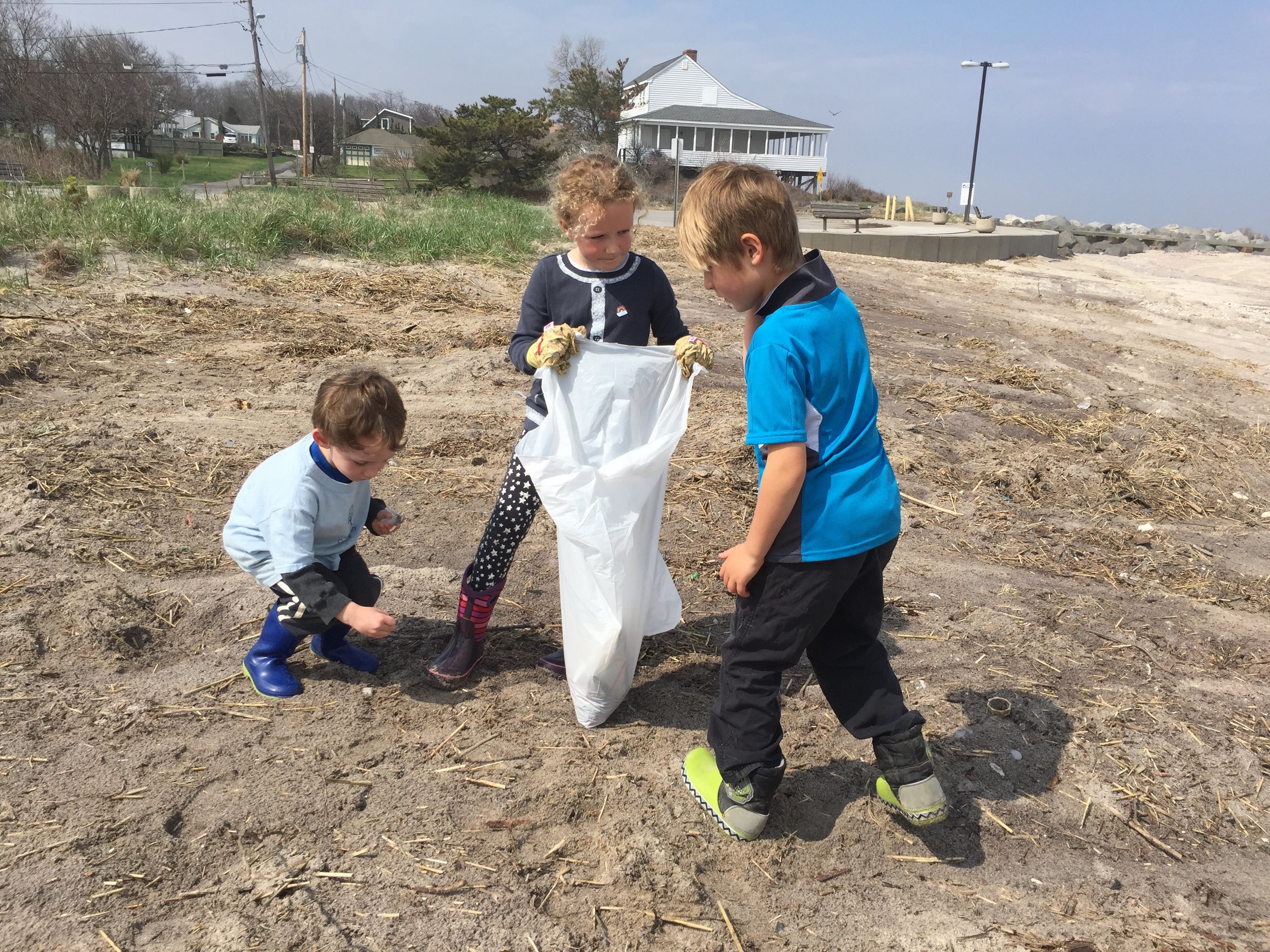Stemming the Tide
68 pounds
You may already have heard -- 68 pounds of trash in one hour, one pound per minute -- that’s how much garbage Peconic Community School cleaned from the shore of our nearest beach last Friday.
We removed fishing line and nets, plastic bottles and caps, aluminum cans, grocery bags, junk food wrappers, cigarette butts, buoys and boat parts, and straws, straws, and more straws.
Marine debris is more than just an unsanitary eyesore for human visitors to the beach; as our guide, Mr. Rob DiGiovanni, lead scientist at Atlantic Marine Conservation Society, explained, it is also a danger to the fish, mammals, and birds that live in the sea and on the shore. Marine animals are at risk from entanglement, ingestion, and contamination: lost or abandoned fish gear like lines and nets often entangle and choke animals, and plastic debris like plastic bags, cutlery, and consumer waste is often mistaken by birds and turtles for food and consumed, leading to death. Students learned about the significance of quickly removing this debris in saving the lives of the animals living in our community.
Coastal cleanups can have an even greater and longer lasting impact if volunteers take the extra step of sorting the collected debris and logging the results in an ocean trash index or database. The Ocean Conservancy, with whom Mr. DiGiovanni collaborates, is working to stop the flow of trash at the source before it has a chance to reach the water to choke or entangle marine animals. By analyzing and researching the types of trash collected and logged by volunteers, the Ocean Conservancy is able to share key details about marine pollution with the public, scientific community, and decision makers to promote good policies, like the Marine Debris Research, Prevention, and Reduction Act and its companion bill in the Senate, the Trash Free Seas Act. It’s this type of research and analysis that is driving national movements to eliminate plastic grocery bags and the use of plastics for takeout, as well as the push to ban drinking straws from food establishments.
Peconic Community School students carted their collected garbage back to school, and a school-wide effort to sort and tally each and every piece of debris has commenced. We will return our results to Mr. DiGiovanni who will, in turn, log them into the Ocean Conservancy’s database. By undertaking this additional component of the clean-up, students deepen their understanding of the relationship between human behavior and a thriving ecosystem.
We often (especially on Monday mornings) hear PCS kids talking about beach cleanups they undertake after school and over weekends with friends and family. They swell with pride as they talk about it -- they’ve made a difference, and they know it! How great would it be if we could help them take it a step further by logging the marine debris into a global database to influence government and industry policy? We encourage you to participate in Ocean Conservancy's effort to compile a database of recovered marine debris. The recent launch of their app, Clean Swell, makes it easy to add data and influence policy.
Sources:
Ocean Conservancy: http://www.oceanconservancy.org
Atlantic Marine Conservation Society: http://www.amseas.org












